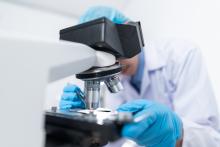Course description
Course organisation
Call for tenders
Annexes to the call for tenders
Results
General contents
Neuroscience is a multidisciplinary research area of considerable scientific importance that has developed exponentially in recent years thanks to the combined application of molecular and cellular technologies that have allowed us to deepen our knowledge of how the brain works.
The training path of the Doctoral Course aims to provide students with the insights needed to understand the unique mechanisms of brain functioning and neural processes of cognitive functions, behavior and learning, both in physiological and pathological conditions, with particular reference to neurological and psychiatric pathologies. The disciplinary areas of reference, including both theoretical aspects and specific investigation methodologies, will concern, in an integrated manner, psychiatry, molecular and cellular neurobiology, biochemistry, neuropharmacology, neurophysiology, cognitive neuroscience, behavioral biology, psychobiology, neuropsychology. In line with the most current trends in the study of the brain/mind relationship, the basis for moving from a basic reductionist approach to a progressively more integrated functionalist one will be provided.
The impact of neuroscience on public and social health is enormous if we consider that approximately 100 million people in the world suffer from neurodegenerative diseases that represent real social emergencies. It is estimated that dementia alone affects over 500,000 subjects in Italy and that, with the progressive aging of the population, it will increasingly represent a health priority for our country. Furthermore, considering the human and social costs of diseases induced by lesions of the nervous system, it follows that neuroscience, today, represents one of the fields of research that can contribute most, with their advances, to individual and public health. Therefore, on the biomedical front, particular attention will be paid to neurodegenerative disorders characterizing old age. In this context, emphasis will be placed on the identification of predictive biomarkers (proteins, metabolites, nucleic acids) and the development of advanced ultrasensitive methodologies. The information obtained will be used to verify, in vitro and in vivo, cellular and animal models of pathology and to expand the spectrum of current therapeutic interventions.
It should be emphasized that the project proposal has also been welcomed by the Apulian business system (health, pharmaceutical, biotechnology companies, clinical structures, ASL, health residences) with great interest and numerous discussions have been initiated that have not yet been formalized as it is a newly established Doctoral Course. In particular, the proposed training course aims to create value through the knowledge generated by geriatric and gerontological research,to develop cutting-edge research programs on aging - considering both basic and translational research - and to ensure excellence in care and assistance for elderly patients integrated with research activities, also contributing to scientific progress through research products transferable to the health system.
Learning objectives
The PhD course in Basic and Clinical Neuroscience aims at an advanced research training focused on the interdisciplinary study of the central and peripheral nervous system, the mind/brain system and applications in social and clinical contexts. Therefore, the main macro-objectives are: - through synergies between basic researchers and clinicians, to deepen the understanding of the molecular and physiopathological bases of some of the most important pathologies of neuropsychiatric and neurodegenerative interest; PhD students will be provided with a solid theoretical and practical preparation and an in-depth experimental and analytical knowledge of the most modern and advanced technologies of molecular biology, neurochemistry, electrophysiology, neurogenetics and animal behavior applied to neuroscience in order to acquire knowledge useful for the development of innovative therapies and prevention aimed at active and healthy aging. - expand the neuroscientific knowledge underlying learning processes and the various types of memories in physiological and pathological conditions in order to develop tools that can increase cognitive performance and the effectiveness of training processes, thus offering new possibilities for support and therapy for people with special and specific needs; - enable students to acquire an autonomous capacity for scientific research that highlights creative originality and methodological rigor by inserting them into a network of relationships and exchanges with national and international high-level research facilities and with public and private bodies.
The thematic areas that we intend to develop are the following:- Neurobiology. This area includes basic research and applied research in the cellular and molecular field. This area includes Neurobiology, Cellular and Molecular Neurophysiology, Neuroanatomy, Cellular and Molecular Neuropathology, Cellular and Molecular Neuropharmacology and all research conducted on experimental models and aimed at developing and testing molecules or procedures intended for diagnostic or therapeutic application. On a scientific level, this theme is expressed in the study of molecular, metabolic, synaptic and functional changes that affect the brain following the onset of learning disorders but also during aging and in the study of synaptic and systemic plasticity mechanisms;- Pathophysiology. This area includes, on the one hand, research aimed at defining the alterations that characterize brain diseases related to aging, on the other, the application of the principles and methods of regenerative medicine (with particular attention to the development of techniques based on the use of stem cells) to the specific problems of aging. This area therefore also includes research that would traditionally be defined as Neurology and Experimental Psychiatry or Neuropsychology and research that concerns Systems Physiology, Psychology, Artificial Intelligence, Neural Networks, Behavioral Sciences; - Prevention. This area, fundamental in the long term, is closely related to the two previous ones and aims on the one hand to define the procedures to promote adaptive plastic mechanisms capable of improving learning but also of slowing down mechanisms that contribute to the process of brain aging as well as to reduce the factors that favor this process or exacerbate the clinical manifestations of certain neurological and neuropsychiatric pathologies.
Educational activities
Expected teachings
- Neurochemistry
- Cellular and animal models of human neurological diseases
- Neurogenetics
- Stemness in Neuroscience
- Microbiome and the Gut-Brain Axis
- Sensory and Cognitive Neuroscience
- Mitochondrial Pathophysiology in Neuroscience
- Chronobiology and Neuroscience
- Methodology in Scientific Research
- Bioethics
Other educational activities
- Linguistic improvement
- Computer improvement
- Management of research and knowledge of European and international research systems
- Valorisation and dissemination of results, intellectual property and open access to research data and products
- Core principles of ethics, gender equality and integrity
- Seminars
Admission requirements
Master's degrees:
- LM-6 Biology
- LM-8 Industrial Biotechnology
- LM-9 Medical, Veterinary and Pharmaceutical Biotechnology
- LM-13 Pharmacy and industrial pharmacy
- LM-17 Physics
- LM-18 Computer Science
- LM-21 Biomedical Engineering
- LM-32 Computer Engineering
- LM-40 Mathematics
- LM-41 Medicine and Surgery
- LM-42 Veterinary Medicine
- LM-46 Dentistry and dental prosthetics
- LM-51 Psychology
- LM-54 Chemical Sciences
- LM-55 Cognitive Sciences
- LM-60 Natural Sciences
- LM-61 Human Nutrition Sciences
- LM-67 Sciences and techniques of preventive and adapted motor activities
- LM/SNT1 Nursing and midwifery sciences
- LM/SNT2 Rehabilitation sciences of health professions
- LM/SNT3 Technical health professions sciences
- LM/SNT4 Sciences of health professions of prevention
Job and professional opportunities
The training network of the Doctorate is extensive and includes all the locations where the members of the Teaching Board carry out their activities in order to guarantee the Doctoral students the possibility of coming into contact with laboratories operating in university and non-university environments of very high level and with an internationally recognized profile of excellence. At the end of the doctoral training course, the students will be able to develop research projects independently, coordinate data collection by integrating methods specific to basic and clinical sciences, evaluate the results, propose technological innovations, work in multidisciplinary teams. The PhDs will be able to continue their training in their respective areas of specialization as well as acquire expertise functional to professional figures such as Basic Researcher or Researcher in clinical fields such as neurology and psychiatry.
The skills acquired will facilitate professional placement in various fields of Neuroscience, both in dedicated university laboratories equipped with advanced instrumentation and in healthcare companies, in research/development sectors of biotechnology and pharmaceutical companies as well as in regional and national hospitalization and care clinical facilities with which the professors of the doctoral course have already undertaken and consolidated scientific collaboration relationships, as well as in consultancy activities related to their scientific area of expertise.







